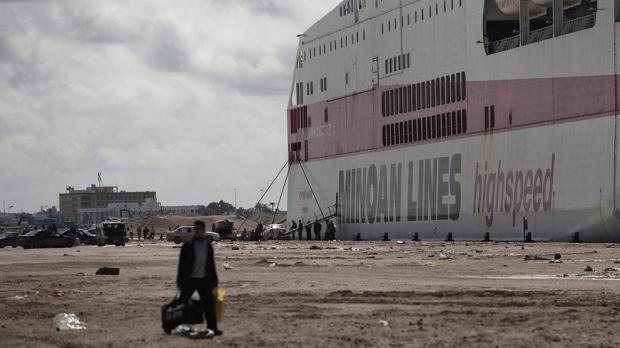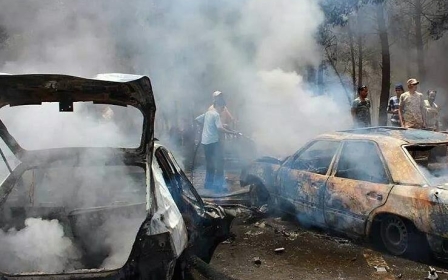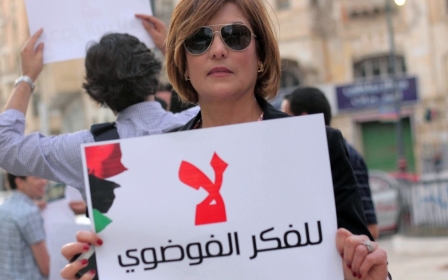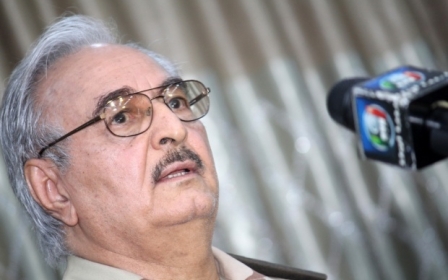Conflicting reports over Benghazi hospital attack in Libya

Jalaa Hospital, an emergency and surgery facility near the coast in Benghazi, was attacked by joint forces from the Libyan army and police force on Tuesday.
The attacks aimed at dislodging unknown militant groups who have been in control of the hospital for the past two days, reports Libyan daily al-Wasat.
The hospital was evacuated of patients, workers and medical professionals on Saturday.
Commenters posted a copy on the hospital’s Facebook page of a fax apparently sent from Benghazi’s Joint Control Room on 28 June, calling on those inside to leave before attacks.
According to the statement, the hospital had fallen under the control of “an armed group working outside state legitimacy and exploiting recent events at Benghazi’s sea port”.
The statement appears to refer to Sunday’s reported seizure of the sea port by “unknown militants.”
The facility’s executive security manager told al-Wasat that his forces had withdrawn from the port in the face of militant attack “because of the lack of equipment among our forces. We are very weak in terms of preparedness.”
Jalaa Hospital: a militia treatment centre?
After Libyan news outlets reported news of the evacuation of Jalaa Hospital, the Shura Council of Benghazi Revolutionaries issued a swift rebuttal, announcing that the hospital had returned to its normal operations to meet residents’ needs.
According to the statement, volunteers from two districts of Benghazi have undertaken the task of securing the hospital.
Mohamed Eljarh, an analyst living in Libya, explained that the Shura Council of Benghazi Revolutionaries may be essentially a front for Ansar al-Sharia, one of the biggest militant groups in Benghazi.
“They use the name Shura Council of Benghazi Revolutionaries to give them a breathing space, since the name Ansar al-Sharia is so hated in Benghazi. They say they are protecting people in the city and the hospital, but really they are seeking to use the hospital as a treatment centre for fighters injured in Operation Dignity. The hospital has actually been outside government control since 2012, and staff in 2013 asked Majlis al-Shura to protect them from attacks on staff.”
However, Eljarh suspects that these attacks may have been orchestrated by Majlis al-Shura themselves, who for the past year have been seeking to build up control of strategic sites in Benghazi.
Khalifa Haftar and Salwa Bugaighis
The Benghazi Revolutionaries issued a statement on 27 June accusing General Khalifa Haftar’s forces of assassinating prominent human rights activist Salwa Bugaighis at her Benghazi home a day earlier.
Bugaighis’s death in hospital, after militants stormed her home and shot her, shocked Libya.
She had been a key supporter of the 2011 revolution against former dictator Muammar al-Gaddafi.
Responding to accusations that the Benghazi Revolutionaries were responsible for the attack, they accused supporters of Haftar’s “Operation Dignity”, launched in Benghazi on 16 May with the stated aim of clearing the city of militia groups, of the murder.
According to the statement, Bugaighis and her husband were “political opponents” of the operation.
However, Mohammed Eljarh refutes this, saying that Bugaighis was actually a prominent supporter of Haftar’s campaign.
“While Salwa’s sister Leila, a member of the Benghazi stabilisation committee, urges dialogue and does not stand behind Haftar, Salwa was actually a prominent supporter of the campaign.
“An hour before her death, she was on television speaking out against Ansar al-Sharia and lending her support to Haftar’s campaign.”
According to Eljarh, Haftar’s Operation Dignity is ongoing, with air attacks on Derna and Benghazi.
New MEE newsletter: Jerusalem Dispatch
Sign up to get the latest insights and analysis on Israel-Palestine, alongside Turkey Unpacked and other MEE newsletters
Middle East Eye delivers independent and unrivalled coverage and analysis of the Middle East, North Africa and beyond. To learn more about republishing this content and the associated fees, please fill out this form. More about MEE can be found here.




